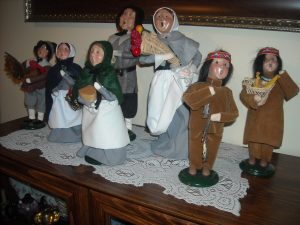 Psalm 115:1
Psalm 115:1
Not to us, O Lord, not to us, but to your name give glory, for the sake of your steadfast love and your faithfulness! (ESV)
Worship does not come easily to the human heart. There are many reasons, but at the core is sin, the great evil that rejects God as God, refuses to love him foremost, and rebels against him and his ways. Sadly, we reject him as our Creator, Preserver, Ruler, and Holy One. We struggle with the Biblical idea that God alone is the cause, means, and goal of everything. For from him and through him and to him are all things. To him be glory forever. Amen (Romans 11:36 ESV). You see, we want to be the goal of everything. We want our needs and desires to be satisfied. We want the world to go at our pace. We don’t want anyone or anything to disrupt our plans, because we must be happy! A simple way to evaluate yourself on this is to think about your plans for the Christmas season: people you want to be with, places you want to go, parties you want to attend, pleasures you want to experience, and presents you want to receive. Did you notice the recurring phrase? How many of them give preference to God’s glory and will?
Worship does not come easily to the human heart. Worship declares God’s worth and primary significance. How can we worship and bring glory to God?
- We must know the God that we are to worship. True knowledge of God comes through Jesus Christ (cf. John 14:6). To know God, we must trust in the Lord Jesus Christ for salvation. We first must be rescued from our sin and selfishness.
- We must humble ourselves before God. Mankind, He has told you what is good and what it is the Lord requires of you: to act justly, to love faithfulness, and to walk humbly with your God (Micah 6:8 HCSB). We cannot worship when we try to usurp his place or put other things in his place.
- We must refuse praise that belongs to God. Not to us, O Lord, not to us… We like to be admired, congratulated and thanked. But we must make certain that God receives the praise, because apart from the Lord we can accomplish nothing of eternal significance (cf. John 15:5). Spiritual gifts are from the Spirit of God, and so we must honor God as we use them. This requires a conscious effort to honor the Lord.
- We must become spiritually fruitful. My Father is glorified by this: that you produce much fruit and prove to be My disciples (John 15:8 HCSB). God desires to see us display the way of life that honors him, the fruit of the Spirit (Galatians 5:22-23).
The aim is that others might see and honor God’s steadfast love and faithfulness. Those who follow Christ Jesus are God’s covenant people. We belong to God. We give this testimony to the world. When we praise God for his actions in our lives, we point others toward him. For example, “I trusted God in my affliction, although people thought he had abandoned me. But look, I am here today! He has preserved me, he has met my needs! God is faithful; we can rely on his love!” During this Christmas season, let’s evaluate our aims. Do we strive to honor God? In the activities of a busy holiday season, do we make room in our hearts to worship?
Grace and peace, David

 2 Chronicles 20:20-30
2 Chronicles 20:20-30 2 Chronicles 20:18-19
2 Chronicles 20:18-19 2 Chronicles 20:14-15a
2 Chronicles 20:14-15a Psalm 12:4-8
Psalm 12:4-8 Psalm 12
Psalm 12 2 Chronicles 20:5-13
2 Chronicles 20:5-13 2 Chronicles 17:1-19
2 Chronicles 17:1-19 Psalm 9:3-12
Psalm 9:3-12 Psalm 3
Psalm 3